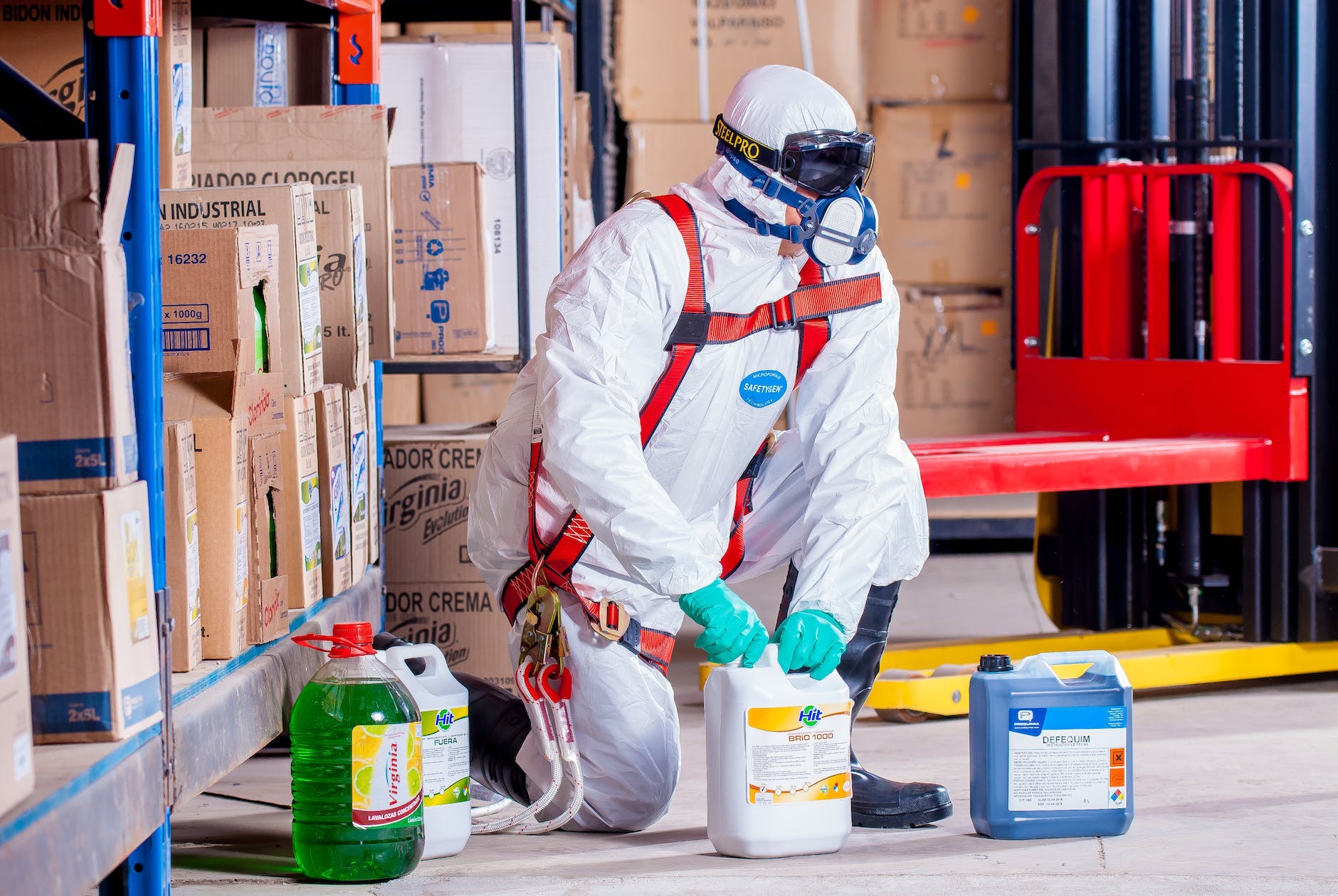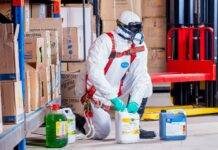
Chemical Safety Basic Knowledge
Chemical Safety Basic Knowledge : In our modern world, chemicals play a pivotal role in numerous industries, from pharmaceuticals to manufacturing. While they have revolutionized our lives, they also pose significant risks when not handled with care. Chemical safety is paramount, whether you are working in a laboratory, a manufacturing plant, or even handling household cleaning products. This article will provide you with essential knowledge about chemical safety, ensuring you have the information you need to protect yourself and those around you.
1. Introduction: Understanding the Importance of Chemical Safety
1.1 Why Is Chemical Safety Crucial?
Chemicals, in various forms, are all around us. From the medicines that cure illnesses to the materials used in construction, chemicals make our world go round. However, many chemicals can be harmful when not handled properly. Chemical safety is crucial because it prevents accidents, protects the environment, and ultimately saves lives.
1.2 Who Needs to Be Concerned About Chemical Safety?
Chemical safety is not limited to scientists in laboratories. Anyone who handles chemicals, from industrial workers to students in chemistry class, needs to be concerned about chemical safety. It’s a collective responsibility to ensure that chemicals are used safely.
2. Common Chemical Hazards
2.1 Chemical Categories
Chemicals can be categorized based on their properties and hazards. Understanding these categories helps in identifying potential risks and selecting appropriate safety measures.
2.2 Recognizing Hazardous Chemicals
Being able to identify hazardous chemicals is the first step in staying safe. This section will teach you how to recognize warning signs and labels on chemical containers.
2.3 Routes of Exposure
Understanding how chemicals can enter your body is essential for prevention. We’ll discuss the different routes of exposure and how to mitigate them.
3. Personal Protective Equipment (PPE)
3.1 Selecting the Right PPE
Not all PPE is created equal. Learn how to choose the right personal protective equipment for the specific chemicals and tasks you’re dealing with.
3.2 Proper Use of PPE
Wearing PPE is not enough; you need to use it correctly. We’ll provide detailed instructions on the proper use of PPE to maximize your safety.
3.3 Maintenance and Care
PPE requires maintenance to remain effective. Discover how to care for your protective gear to ensure it continues to protect you.
4. Handling and Storage
4.1 Safe Handling Procedures
Learn the best practices for safely handling chemicals to minimize the risk of accidents and exposure.
4.2 Proper Chemical Storage
How you store chemicals can greatly affect their stability and safety. This section covers the do’s and don’ts of chemical storage.
5. Emergency Response
5.1 Spill Response
Accidents happen, but being prepared can mitigate their impact. Learn how to respond to chemical spills safely and efficiently.
5.2 First Aid Measures
In case of exposure, knowing first aid measures can make a significant difference. We’ll provide essential guidelines for immediate care.
5.3 Evacuation Procedures
Sometimes, the safest response is to evacuate. Discover the steps to take during a chemical emergency evacuation.
6. Chemical Safety Training
6.1 Importance of Training
Proper training is the cornerstone of chemical safety. Understand why training is vital and how it empowers individuals to protect themselves.
6.2 Ongoing Education
Chemical safety is an evolving field. Find out how ongoing education and staying updated on best practices can keep you safe.
7. Regulatory Compliance
7.1 OSHA Standards
Learn about the Occupational Safety and Health Administration (OSHA) standards that govern chemical safety in the workplace.
7.2 Chemical Labeling and Safety Data Sheets (SDS)
Understanding how chemicals are labeled and the information provided in Safety Data Sheets is crucial for safe handling.
8. Case Studies: Learning from Past Incidents
8.1 Bhopal Gas Tragedy
Explore the tragic events of the Bhopal gas leak and the lessons it teaches us about chemical safety.
8.2 Chernobyl Nuclear Disaster
Delve into the catastrophic Chernobyl nuclear disaster and its far-reaching consequences, emphasizing the importance of safety in the nuclear industry.
9. Promoting a Culture of Safety
9.1 The Role of Management
Discover how leadership and management play a pivotal role in fostering a culture of safety within organizations.
9.2 Reporting and Feedback
Learn why reporting incidents and providing feedback are crucial for continuous improvement in chemical safety.
10. Conclusion: A Safe Future Starts with You
As we conclude our journey through the realm of chemical safety, remember that safety is everyone’s responsibility. By implementing the knowledge and practices outlined in this article, you contribute to a safer workplace and environment for all.
Personal Protective Equipment (PPE) for Chemical Safety
Frequently Asked Questions
1. What is the most important aspect of chemical safety?
The most important aspect of chemical safety is awareness. Knowing the potential hazards of chemicals and how to protect yourself and others is paramount.
2. Are there specific regulations for chemical safety in laboratories?
Yes, laboratories are subject to specific safety regulations, often governed by agencies like OSHA and the Environmental Protection Agency (EPA).
3. Can you provide tips for storing household chemicals safely?
Certainly! Storing household chemicals in a cool, dry place, away from children and pets, and keeping them in their original containers with labels intact is a good practice.
4. How can I stay updated on the latest developments in chemical safety?
To stay updated, consider joining professional organizations related to your field, attending safety seminars, and regularly reviewing industry publications.
5. What should I do if I suspect a chemical exposure or spill?
If you suspect a chemical exposure or spill, immediately follow the appropriate emergency response procedures, which may include evacuation, seeking medical attention, or contacting relevant authorities.
Remember, chemical safety is not just a set of rules; it’s a mindset and a commitment to protecting yourself and those around you.





















